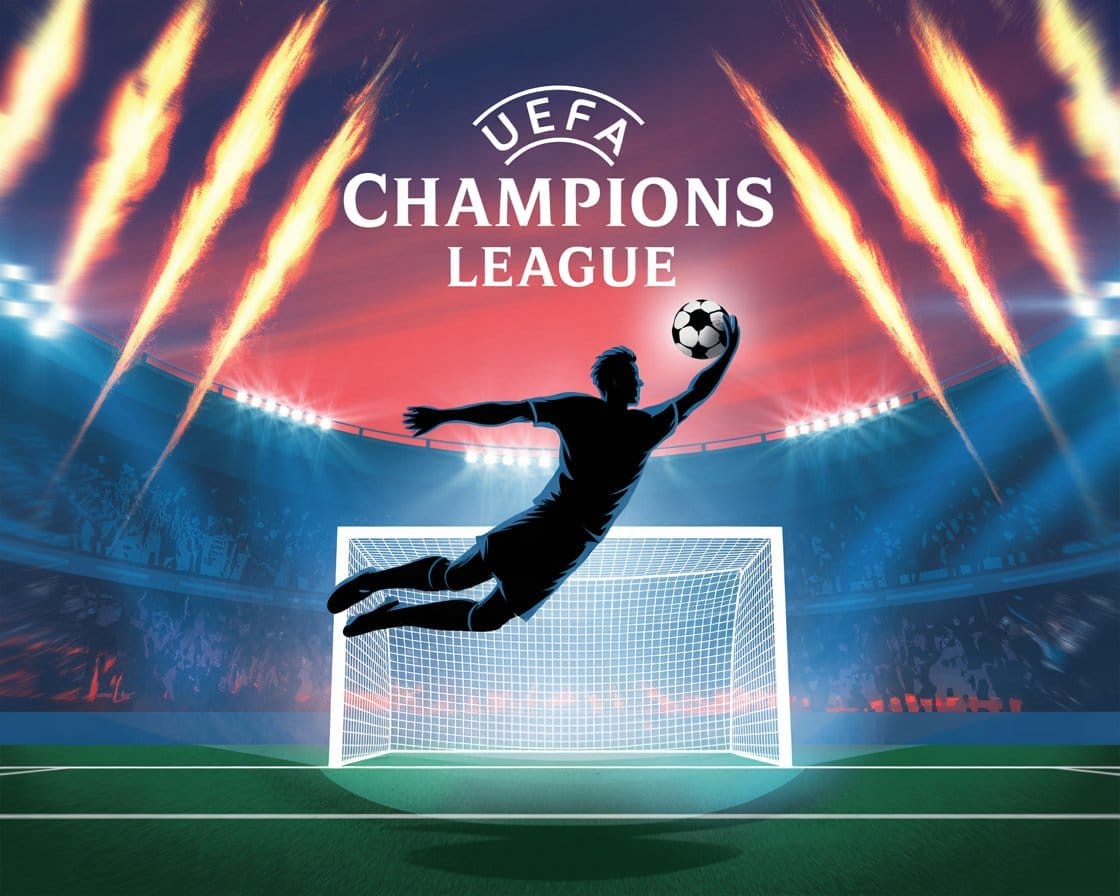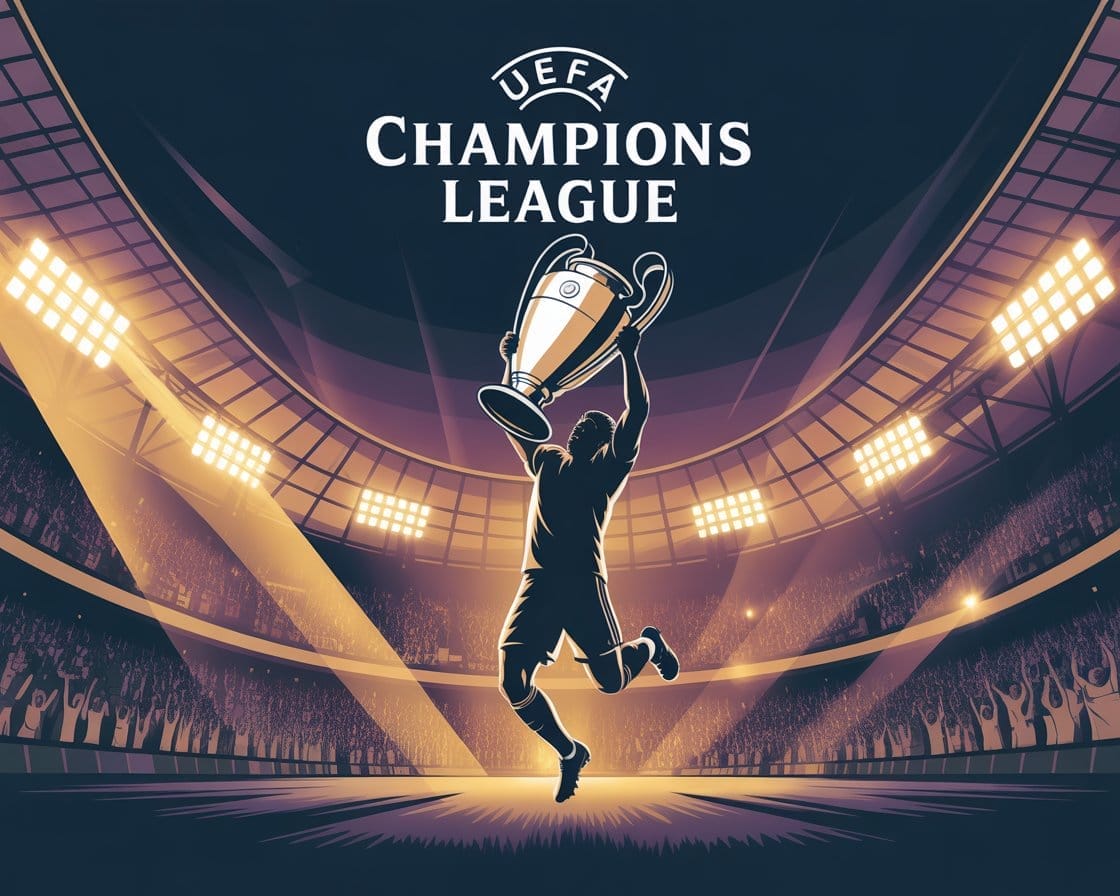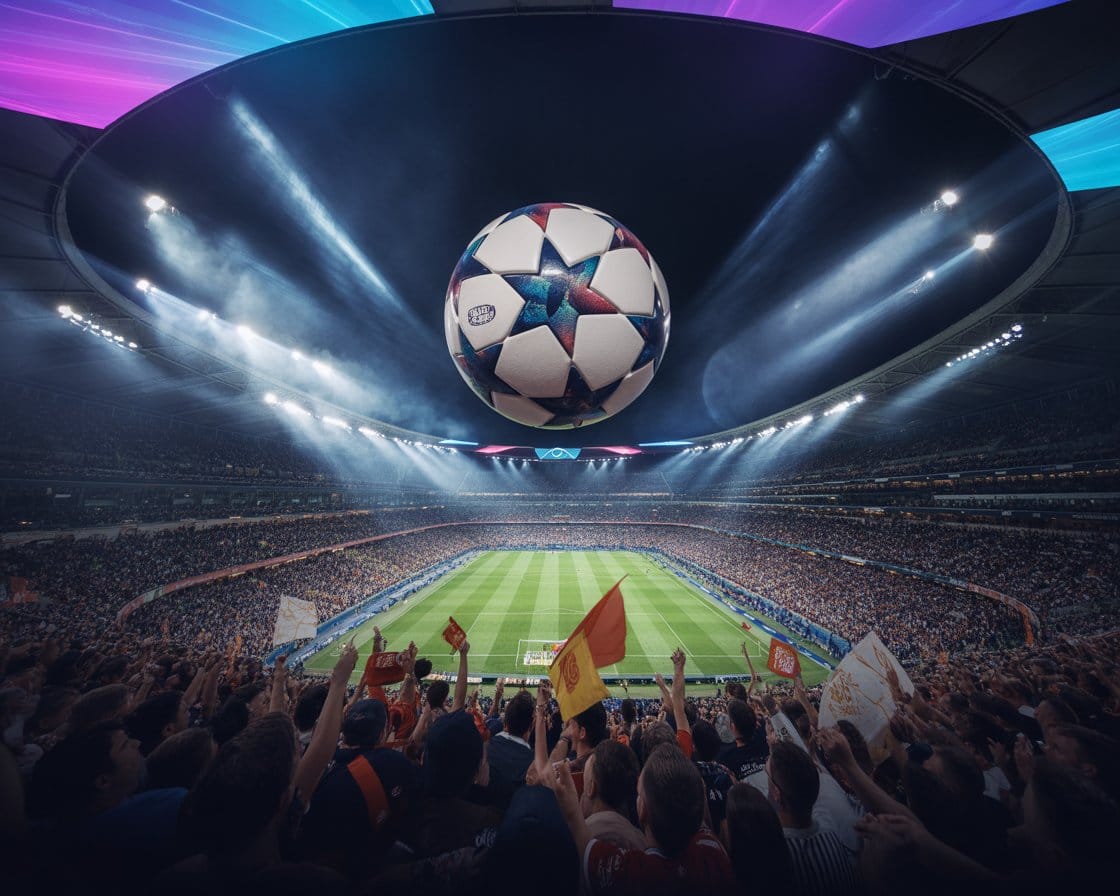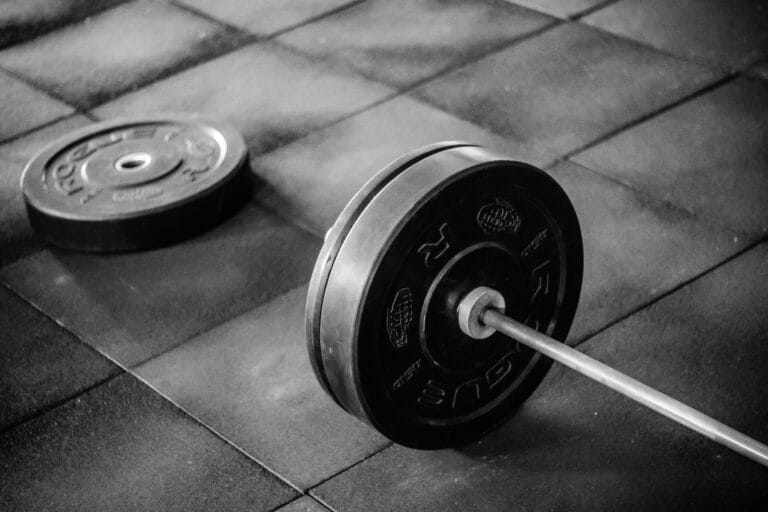
Introduction to the UEFA Champions League
The UEFA Champions League is the most prestigious tournament in European club football. Each year, it brings together the strongest teams from across Europe to compete for one of the most respected trophies in the world of sports. For fans, the tournament is not only about football matches but about passion, rivalries, and unforgettable memories. UEFA organizes the Champions League, the Union of European Football Associations. Matches are broadcast globally, attracting millions of viewers who tune in to watch their favorite clubs battle for supremacy. Whether in the early group stage or the knockout rounds, the atmosphere surrounding the competition is electric.
For fans who want to experience the excitement firsthand, securing tickets to UEFA Champions League matches is a dream. From the roar of the crowd when the anthem plays to the intensity of the final whistle, attending a match live is an experience like no other. With each season, the official ball UEFA Champions League design also changes, adding to the unique identity of the tournament.
As we look ahead to the 2026 UEFA Champions League final, fans are eager to plan their trips and purchase tickets, especially for the semi-final and final stages. UEFA Champions League tickets for the semi-final sell out quickly because the level of competition is unmatched. Watching the world’s best clubs fight for a place in the final is an unforgettable spectacle. The Champions League represents the pinnacle of European football. It is more than a tournament; it is a celebration of skill, history, and the love of the game.
History of the UEFA Champions League
The story of the UEFA Champions League begins in 1955, when it was first introduced as the European Cup. Back then, the competition was created to determine the best European club, and only 16 teams participated. Real Madrid dominated the early years, winning the first five consecutive editions and setting the tone for future rivalries.
In 1992, the competition was rebranded as the UEFA Champions League. This new name came with a more modern format, group stages, and greater global recognition. The anthem, which is now iconic, was also introduced and has since become a symbol of the tournament’s prestige. Over the decades, the Champions League has produced countless memorable moments. From stunning comebacks to dramatic penalty shootouts, the competition’s history is filled with unforgettable stories. Clubs like AC Milan, Bayern Munich, Liverpool, and Barcelona have all left their mark on the tournament. Cristiano Ronaldo and Lionel Messi, two of the greatest players in history, built much of their legacy in this competition.

The Champions League has also grown into a global event, with fans from around the world following the matches. Today, the tournament is more competitive than ever, with clubs from the top leagues in England, Spain, Italy, and Germany dominating the later stages. Looking ahead, the history of the competition continues to inspire. Fans eagerly anticipate the future, especially the 2026 UEFA Champions League final, which promises to add another unforgettable chapter to the tournament’s long and exciting journey.
Format and Structure
The UEFA Champions League is structured to bring out the best from Europe’s top clubs. The competition begins with a qualifying phase for smaller clubs and a group stage featuring 32 teams. These teams are divided into eight groups of four, where each club plays home and away matches.
The top two teams from each group advance to the knockout stage. This phase makes the Champions League so thrilling, as every round is played over two legs, one home and one away. The away-goals rule used to be a defining factor but was recently removed, making ties even more competitive. After the Round of 16, the competition moves to the quarter-finals and the semi-finals. For fans, the UEFA Champions League semi-final tickets are highly sought after, as these matches often feature the most intense rivalries and unforgettable performances. The winners of the semi-finals then advance to the grand finale.
The UEFA Champions League ball is also a key symbol in the tournament. Each season, a new design is introduced that reflects the host city of the final. Fans and players alike look forward to its unveiling every year. Finally, the 2026 UEFA Champions League final will be the ultimate showdown. The final is played at a pre-selected neutral venue, and securing tickets to UEFA Champions League finals is a once-in-a-lifetime opportunity for many fans. The winner not only lifts the famous trophy but also earns a place in the UEFA Super Cup and the FIFA Club World Cup. This format ensures excitement from start to finish, keeping the Champions League the premier competition in world football.
Participating Teams and Leagues
One of the reasons the UEFA Champions League is so exciting is the diversity of teams that participate every season. Clubs qualify for the competition through their domestic leagues, meaning the tournament always features the strongest teams across Europe. For example, regular contenders are the top clubs from the English Premier League, Spanish La Liga, German Bundesliga, Italian Serie A, and French Ligue 1.
In total, teams from over 50 different countries have taken part in the competition since its inception. While the so-called “big five” leagues dominate, smaller nations also contribute by sending their champions through the qualifying rounds. This creates opportunities for surprise stories where lesser-known clubs make a significant impact.
Fans eagerly wait for the draw each season to see which teams will face each other in the group stage. The draw ceremony has become a spectacle, with excitement building as giants of European football are paired. For fans hoping to attend, tickets to UEFA Champions League group matches are more affordable than knockout rounds, making them a great way to experience the atmosphere.
The presence of global superstars also adds to the excitement. Clubs like Real Madrid, Barcelona, Bayern Munich, Manchester City, and Paris Saint-Germain often dominate headlines, but there is always room for underdogs. A single dramatic win can change the course of a tournament. Including so many top-level teams ensures that the Champions League remains unpredictable and full of drama. Whether it’s a powerhouse club chasing another title or a more minor team making history, the variety of participants makes this tournament so special.
Rules and Regulations
The UEFA Champions League operates under detailed rules that maintain fairness and competitiveness. Understanding these regulations is essential for players and fans who want to follow the competition closely.
One of the main rules concerns player eligibility. Clubs must submit a squad list before the competition begins, and there are limits on the number of foreign players to encourage the development of local talent. Financial Fair Play regulations also ensure that clubs do not overspend beyond their means. This keeps the competition balanced and sustainable. Match rules follow international standards set by FIFA. Games last 90 minutes, with extra time and penalties used in knockout rounds if needed. Recently, UEFA scrapped the away-goals rule, meaning ties that finish level over two legs go straight to extra time and penalties. This change has made matches even more unpredictable.
Disciplinary rules are also strict. Players who collect multiple yellow cards may face suspensions, and red cards lead to immediate bans. Fair play is at the heart of the competition, and referees are supported by the Video Assistant Referee (VAR) system to ensure correct decisions in key moments. The regulations around UEFA Champions League tickets semi final and final are equally important for fans. Tickets are distributed through official UEFA platforms to prevent fraud, and stadium security is strictly monitored. The ball for the UEFA Champions League must also meet specific design and performance standards set by UEFA. By following these rules, UEFA ensures that the Champions League remains not just a football competition but a global sporting event that reflects professionalism, fairness, and excitement.

Records and Notable Achievements
The UEFA Champions League has a rich history of remarkable records and achievements. These moments have helped shape the tournament into what it is today and continue to inspire fans and players alike.
Real Madrid holds the record for the most titles, having lifted the trophy 14 times. Their dominance is unmatched, particularly in the early years and in recent seasons. AC Milan follows with seven titles, while clubs like Liverpool, Bayern Munich, and Barcelona have also made their mark with multiple championships. Individual records are just as impressive. Cristiano Ronaldo is the all-time leading scorer in the competition, with over 130 goals. Lionel Messi closely follows, and both players have set standards for future generations. Goalkeepers like Iker Casillas and Gianluigi Buffon have also left legendary legacies through their performances in the tournament.
There are also unforgettable matches that stand out in history. Liverpool’s comeback against AC Milan in the 2005 final, Barcelona’s dramatic turnaround against Paris Saint-Germain in 2017, and Chelsea’s penalty shootout win in 2012 are just a few examples of how unpredictable the Champions League can be. Even the official ball of the UEFA Champions League becomes a symbol of these historic games, with each design tied to iconic moments. As we move closer to the 2026 UEFA Champions League final, fans wonder which team will write the next great chapter in history. These records and achievements remind us why the competition is so cherished. Every match has the potential to deliver another unforgettable moment that lives on in football folklore.
Impact on European Football
The UEFA Champions League is not just a tournament but a driving force that has reshaped European football in countless ways. Its impact can be seen both on and off the pitch, influencing everything from player development to the global popularity of clubs.
For players, performing in the Champions League is considered the ultimate test. Success here often defines careers, with scouts and clubs closely monitoring performances. Many young players have risen to stardom by making their mark in this competition, while established stars enhance their legacies through Champions League glory. For clubs, participation brings enormous financial benefits. Revenue from broadcasting rights, sponsorship deals, and tickets to UEFA Champions League matches helps clubs invest in better players and facilities. This economic boost has widened the gap between Europe’s elite clubs and smaller teams and raised the overall standard of football across the continent.
The cultural impact is equally strong. The Champions League anthem is instantly recognizable, and match nights create a shared experience for fans worldwide. Cities that host the final see massive tourism boost, with thousands of fans traveling to watch the game live. Demand for UEFA Champions League tickets in the semi-finals and finals contributes significantly to the local economy. Even at a grassroots level, the influence is felt. Young players dream of playing in the Champions League, which raises the level of competition in domestic leagues. Ultimately, the Champions League has become more than a football tournament. It symbolizes European unity, bringing together diverse cultures, languages, and fan bases under one competition. Its impact continues to grow, and the upcoming 2026 UEFA Champions League final is expected to further showcase the power of this tournament on global football.
Match Schedule
The UEFA Champions League runs across a long season, typically starting in late summer and finishing in May or early June of the following year. The tournament begins with qualifying rounds for smaller clubs, before the group stage officially kicks off in September.
Group-stage matches are usually played on Tuesdays and Wednesdays, which has become a tradition for football fans worldwide. Each team plays six games in the group stage, with matches spread across several months. This ensures that fans have regular midweek excitement to look forward to. After the group stage, the knockout rounds begin in February. The Round of 16, quarter-finals, and semi-finals are played over two legs, giving teams home and away opportunities. For supporters, UEFA Champions League semi-final tickets are some of the most in-demand because these matches often decide the fate of Europe’s biggest clubs.
The climax of the tournament is the final, played at a neutral venue. The 2026 UEFA Champions League final is already one of the most anticipated events, and fans worldwide will compete for tickets to the UEFA Champions League finals. The final is held on a Saturday evening, maximizing global viewership and ensuring the event feels like a football festival.
UEFA Champions League 2025–26 Schedule Table
| Stage | Dates (Expected) | Notes |
| Qualifying Rounds | June – August 2025 | Smaller league champions compete for entry |
| Group Stage Draw | Late August 2025 | Held in Nyon, Switzerland |
| Group Stage Matches | September – December 2025 | 6 matches per team, Tuesdays & Wednesdays |
| Round of 16 | February – March 2026 | Home and away ties |
| Quarter-Finals | April 2026 | Two-leg knockout |
| Semi-Finals | Late April – Early May 2026 | UEFA Champions League tickets for the semi-final are in the highest demand |
| Final | May 2026 (Exact Date TBA by UEFA) | 2026 UEFA Champions League final, single match at a neutral venue |
In addition to the matches themselves, UEFA also organizes official ceremonies, including the group-stage draw and awards events. These moments add extra glamour to the season, ensuring that the Champions League is not just about football but prestige and entertainment.
How to Watch the UEFA Champions League
The UEFA Champions League is broadcast globally, making it accessible to millions of fans anywhere. UEFA partners with major sports networks to ensure maximum coverage. In Tier 1 countries like the United States, the United Kingdom, Canada, and Australia, matches are available on top sports channels and streaming platforms.
For fans who prefer to watch on the go, online streaming has made the competition more accessible. Services often provide highlights, replays, and live coverage, so supporters never miss a moment. Official apps also provide match updates, line-ups, and statistics in real-time. However, watching the Champions League live in a stadium is an unmatched experience. Fans often travel across Europe to support their clubs, making UEFA Champions League semi-final and final tickets highly sought-after. With the energy of thousands of fans chanting and singing, the atmosphere is unforgettable.

Even for those who cannot attend, the experience is global. Pubs, restaurants, and city fan zones set up large screens, creating a communal environment for fans to come together. The anthem, the UEFA Champions League ball, and the knockout rounds’ intensity all add to the magic. Whether through television, digital platforms, or live at the stadium, the Champions League ensures that fans worldwide feel connected to the game. The excitement of each season proves why this tournament is considered the peak of club football.
Read Also: Seahawks vs Atlanta Falcons
Upcoming Seasons and What to Expect
The future of the UEFA Champions League looks brighter than ever. UEFA has already announced format changes that will begin in the coming years, including expanding the group stage into a league phase. This means more matches, teams, and excitement for fans.
The competition will feature 36 teams instead of 32, with each club playing more group-stage games against different opponents. This new format is designed to increase fairness and competitiveness, ensuring fans enjoy a greater variety of matches. For fans planning, the 2026 UEFA Champions League final is expected to be a massive event. Ticket sales will be managed directly through UEFA’s official channels, and fans are encouraged to apply early for tickets to the UEFA Champions League semi-finals and finals. With increasing demand, availability is limited, making early planning essential.
Clubs are also strengthening their squads to prepare for these new challenges. With rising investments and the constant evolution of tactics, upcoming seasons promise even more drama and quality football. Players will look to break records, while clubs aim to secure their place in history. Beyond Europe, the tournament’s popularity is spreading. Global audiences continue to grow, and with digital platforms expanding coverage, the Champions League is becoming a truly worldwide event. Fans can expect the future seasons to be bigger, bolder, and even more thrilling.
Conclusion
The UEFA Champions League is the ultimate stage in club football, combining history, passion, and world-class competition. From its humble beginnings as the European Cup to becoming the most-watched tournament in the world, it has grown into much more than just football. Every season brings unforgettable moments, from stunning comebacks to legendary finals. Fans worldwide wait eagerly for the anthem, the kickoff, and the thrill of competition. The excitement is unmatched whether you watch from home, in a fan zone, or inside the stadium.
For supporters, securing tickets to UEFA Champions League matches, especially the UEFA Champions League semi-final and finals, remains a dream. The ball UEFA Champions League each season becomes a symbol of that dream, carrying stories of triumph, heartbreak, and glory. As the 2026 UEFA Champions League final approaches, anticipation continues to build. With new formats, stronger teams, and unforgettable atmospheres, the Champions League will remain the crown jewel of European football. It is not just a competition; it is a celebration of the beautiful game that unites millions worldwide.

FAQs About the UEFA Champions League
-
How can I buy tickets to the UEFA Champions League?
Tickets are sold through UEFA’s official website and authorized partners. For semi-finals and finals, early application is recommended due to high demand.
-
When is the 2026 UEFA Champions League final?
The final will take place in May 2026 at a neutral stadium chosen by UEFA. The exact date and venue will be officially confirmed closer to the season.
-
How many teams participate in the UEFA Champions League?
Currently, 32 teams play in the group stage, but from 2024–25 onward, the competition will expand to 36 teams under the new league format.
-
Which club has won the most UEFA Champions League titles?
Real Madrid holds the record with 14 titles, making them the most successful club in the competition’s history. -
How can I watch the UEFA Champions League live?
Matches are broadcast worldwide on major sports networks and streaming platforms. Fans can also follow through UEFA’s official app and highlights channels.
-
What makes the Champions League ball special each season?
The ball UEFA Champions League is redesigned every year with a unique look inspired by the host city of the final. It has become a collectible for fans.
-
What are the rules for the knockout stage?
Knockout matches are played over two legs, home and away. If scores are level, the tie goes to extra time and penalties. Away-goals rule no longer applies.
-
Why are UEFA Champions League semi-final tickets so popular?
Semi-finals feature Europe’s top clubs fighting for a place in the final. The intensity and quality of these matches make them some of the most in-demand tickets.
-
Which players hold records in the competition?
Cristiano Ronaldo is the all-time top scorer, while Lionel Messi and other legends have also left their mark with unforgettable performances.
-
How does the Champions League impact European football?
The competition boosts club revenues, raises global interest in European football, and inspires young players worldwide to dream of playing on the biggest stage.







